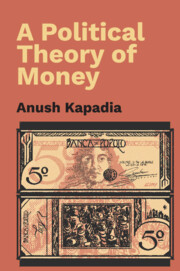8 - National Money versus Shadow Banking: Contradictions of a Public–Private Credit System
Published online by Cambridge University Press: 14 September 2023
Summary
National money is a credit instrument issued by the state's bank, the central bank: money has everywhere been nationalised. However, in rich nations, the institutions that actually issue day-to-day credit remain private, for-profit banks. This contingent nesting of private banking within national money creates hybrid and potentially contradictory phenomena as public credit and private interest clash. This hybrid hierarchy is contingent, expressing a local political settlement. A conflict between private profit and public good is baked into such hybrid systems, the political settlement modulating the antagonists.
This chapter outlines some of the dynamics and contradictions of a hybrid credit system in the abstract and then illustrates how this logic has played out in the development of the post-war American system. In America, hybridity and marketisation combine to amplify the inherent instability of credit. While banks share the exorbitant privilege of ‘issuing money’, they are disciplined by the par constraint. Qualitative differences in public–private robustness are papered over by central-bank control mechanisms: bank regulation, deposit insurance, LOLR and bailouts.
The political settlement determines whether the central bank sets these mechanisms for elasticity or discipline. We read the development of American shadow banking as an instantiation of neoliberalism, the prevailing political settlement. Shadow banking developed through a contingent conjuncture of long-term marketisation processes, first of liabilities (c. 1960) and then assets (c. 1980). This confluence metastasised private money markets which dangerously amplified the inherent instability of the hybrid system.
There is nothing ‘essential’ about this hybrid nature of modern money and its attendant institutions (pace Mehrling, 2013). Hybridity between public and private banking is a contingent historical and political fact. It only appears essential, arguably because this particular formation, having grown up with capitalism itself in early modern Europe (Ingham, 2004), is now globally hegemonic and therefore naturalised. India and China, between them half the world's population, have nationalised both money and banking. These systems have their own specific set of contradictions. They are themselves hybrids of political and economic mutualisation, a form of hybridity that is in fact essential and compatible with different formal ownership structures (see Chapter 1).
All credit systems are inherently unstable, but the profit motive amplifies instability because it incentivises banks into ‘procyclical’ behaviour, making both booms and busts bigger than they would otherwise be. Yet money is also inherently hierarchical.
- Type
- Chapter
- Information
- A Political Theory of Money , pp. 153 - 171Publisher: Cambridge University PressPrint publication year: 2024



